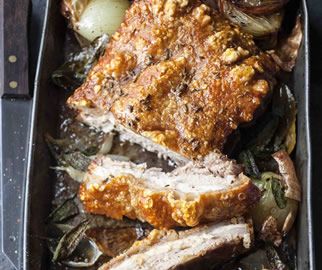Oils and Fats to Avoid
Vegetable oils and their fats should be avoided completely. There are much healthier alternatives and there is no reason or need to consume these types of fats. To empower yourself with even more knowledge, sign up to the Online Program
The main culprits to watch out for are:
• Corn oil • Soybean oil • “Vegetable” oil • Peanut oil • Sunflower oil • Safflower oil • Cottonseed oil • Grapeseed oil • Canola oil • Margarine • Shortening • Any fake butter or vegetable oil products
There is no nutritional need for these oils; healthy fats can be found in higher amounts and better ratios in many other places. This article has a great breakdown of the Polyunsaturated, Monounsaturated, and Saturated content in the above oils.
While it is simple enough to avoid these oils themselves, the tougher challenge is avoiding all the foods they are in. Check out practically any processed food, and you will find at least one of these ingredients, often labelled as “partially hydrogenated corn/soybean/etc. oil” or “May contain soybean or canola oil.”
The below foods in particular often contain one of the above unhealthy oils:
• Salad dressings • Store bought condiments • Store bought mayo • Chips • Artificial cheeses • Store bought nuts and snacks • Cookies • Crackers • Snack foods • Sauces • Practically anything sold in the middle aisles of the store
Oils and Fats to Use Freely
There are so many wonderful and healthy fats that are beneficial to the body, so there is no reason to consume the unhealthy ones above. The below fats can be consumed freely for optimal health – and for some inspiration in the kitchen, Jonno teaches you how to incorporate them into your diet in the Online Program.
- Coconut oil – Filled with Medium Chain Fatty Acids and Lauric Acid, coconut oil is an all star of the saturated fats. Since the fat composition in cells in the body is largely saturated fat, it is important to get enough of it from healthy sources. Coconut oil does not oxidize easily at high temperatures or go rancid easily, making it a good choice for cooking and baking. It also makes a great natural moisturizer and can be substituted for butter.
- Meats – Meat, especially red meat, has gotten a bad rap, and unfortunately, the animals we eat have been as mistreated nutritionally as we have. Meats like grass fed beef and free range chicken, have a very different nutritional profile than their feedlot counterparts. Grass fed and free range meats have higher nutrient levels, healthy forms of saturated fats and even omega-3s. If possible, consume these forms of meat.
- Butter – This one food is usually the one people are happiest to start using again. Butter tastes delicious, and pastured grassfed butter is an excellent source of fat soluble vitamins, healthy saturated fat and other nutrients. It contains a compound that Weston A. Price called Activator X, known to improve nutrient absorption and have preventative benefits against disease.
- Cream – Also a good source of healthy saturated fat, organic heavy cream is essentially liquid butter, and is great served whipped on top of fruit, in desserts or in cream based recipes.
- Olive oil – High in monounsaturated fats and low in polyunsaturated fats, olive oil is a great oil for salad dressings, homemade mayo, and cold recipes. It shouldn’t be used for cooking, since its high monounsaturated fat content makes it susceptible to oxidation at high temperatures.
- Avocados and Avocado Oil – A good source of monounsaturated fats and great on salads or in guacamole. Avocado oil tastes of milk and can be used in salad dressings.
- Fish – Fish are naturally high in Omega-3 fatty acids and can help improve the Omega-3/Omega-6 balance in the body. Look for sustainable wild caught sources, and stick to small fish like sardines, salmon, etc. to minimize mercury.
- Eggs – Another all-star in the healthy fats community, eggs are loaded with vitamins, healthy fats and necessary cholesterol. Consume them daily from free range sources.
Oils and Fats to Consume In Moderation
Some fats are nutritious and beneficial to the body but should still be consumed in moderation if they are eaten. Many contain high levels of Omega-6 fats and can therefore mess up the balance offats in the body.
- Flaxseed Oil – Though it contains a good amount of Omega-3s, it also has a lot of Omega-6s and its high Polyunsaturated fat content makes it prone to oxidation if heated. Fish oil is a much better source of Omega-3s, and in general, we don’t recommend flax oil, though it certainly is not the worst option.
- Walnut Oil – Also high in Omega-6 fats, but it has a great rich taste and can be safely used occasionally in dressings or desserts. It also has a slightly higher resistance to oxidation at higher temperatures than other nut oils.
- Macadamia Nut Oil – This is one of the tastiest oils, but it is expensive. It is great in salad dressings or mayo. It has a lot of monounsaturated fats and low levels of polyunsaturated fats.
- Nuts – Most types of nuts (remember peanuts are not nuts) are a good source of protein and healthy fats and can be eaten in moderation without problem. Just check to make sure they haven’t been cooked in vegetable oils, which is often the case. Nuts also contain phytic acid, so consuming them in excess can be problematic for tooth and bone health.
For more information on how to incorporate the best fats into your diet and to track your daily intake, sign up to the Online Program now.


